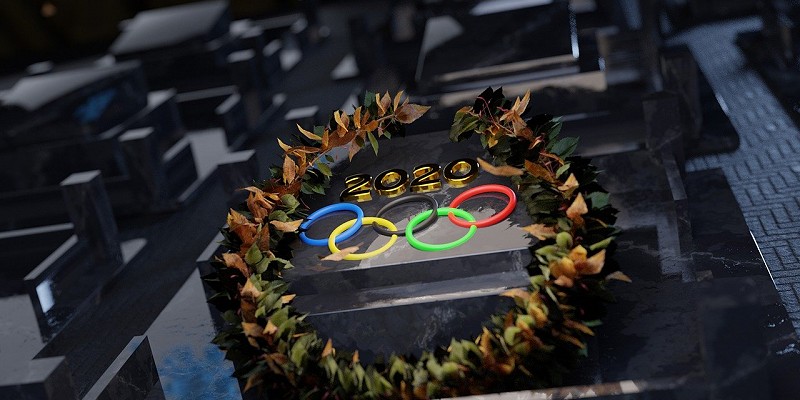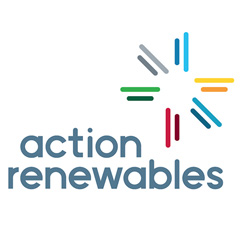The 'Green' Olympic Games in Tokyo 2021

The Olympics are right around the corner and Tokyo’s ambitious plans have many claiming these Games will be the greenest yet. From the medals being made from recycled metal to the recycled plastic podiums. Tokyo wishes to bring the Olympics firmly into the 21st century with all the environmental awareness, climate emergency and sustainability efforts, that modern participants and spectators have come to expect and demand.
The Tokyo Olympics has created 5 “main themes” to promote sustainability during the Games. Excitingly for us 3 of these themes relate to the environment directly, though this does not reduce the importance of the other themes “Celebrating Diversity” and “United in Partnership & Equality”. The first environmental theme is Climate Change, where the Olympics are pushing towards zero carbon emissions by utilising renewable energy [2]. The second is Resource Management where there is as little waste as possible with the aim of recycling 65% of waste from the Games . Lastly is Natural Environment and Biodiversity where they push the idea of “City within Nature/Nature within the City” which is where nature is incorporated into the design of our urban spaces.
The aim of these themes is to make the Games a force for promoting solutions to the social and environmental issues that face the world today. In light of this the Tokyo Olympics are stating that they will use electricity derived from totally renewable sources, including solar power and heating. They also say they will use geothermal energy from the earth’s crust for heating and cooling systems. It is stressed though that not all venues will contain all technologies, likely due to some systems being unsuited to certain venues.
The torch relay is one of the Olympics most famous ceremonies and even this is being made more environmentally friendly. Firstly, the uniforms of the torch bearers being made from recycled Coca-Cola bottles and secondly is the use of recycled aluminium in the construction of the Olympic torch. This aluminium came from the temporary housing built in Japan in the wake of the Great East Japan Earthquake of 2011 so it is highly symbolic to the Japanese of their recovery from that tragedy a decade ago. Some of these torches will also be fuelled using hydrogen, an important component in de-carbonising our transport sector. Tokyo has recognised this and has funded a hydrogen fuel cell refuelling station in Harumi, the district of Tokyo where the games are being held. Once concluded the station will be moved to a different, more useful location. This will assist in fuelling the 2,654 electric vehicles that will be used to transport Games personnel. These vehicles will include fuel cell, plug in hybrid and other types of hybrid vehicle.
Some criticism has been raised by conservationists, who have written to Japanese Prime Minister Yoshihide Suga, over Japan’s controversial practice of whaling despite the International Whaling Commission’s banning of the practice in 1982. The conservationists said, “As one of the few countries in the world who continue to engage in the cruel and unsustainable practice of commercial whaling, Japan can’t win gold for the environment until it’s commitments extend into the ocean too.” [3] Japan has always justified their whaling efforts as purely scientific, yet this controversy looks unlikely to go anywhere anytime soon. Yes, whaling is an environmentally damaging action due to the carbon released during the process [3], not to mention how unacceptable it is to many in the west (who often forget the scale of former European whaling fleets and the current commercial whaling operations in Norway and other Nordic countries) but perhaps, the international praise for the sustainable efforts of Tokyo will make the Japanese people reflect on the practice and hopefully the tide of public opinion (forgive the pun) in Japan will change.
There is also the juxtaposition of the Tokyo Olympics making such a huge effort in sustainability, while also flying in thousands of athletes from across the globe. Perhaps other more sustainable although admittedly slower means of transport could be explored for use in future games.
Tokyo Olympic board is making this Olympic Games the most eco-friendly yet and made great effort turning their policies and statements into action. Hopefully this will serve as a benchmark to future games and to other major sporting events such as the World cup or the Euros which has just ended. When compared to the Euros 2020 it is interesting how in the words of Andrew Simms, Rapid Transition Alliance co-ordinator and co-director of New Weather Institute "Uefa has gone down the offsetting route before and that is massively problematic and lacks scientific credibility," This contrasts with the Olympics which has primarily gone down the route of prevention of emissions. We should remember though that prevention of emissions was not really an option for the Euros as they had decided to stage the competition in multiple countries, where teams and fans would fly from venue to venue. Hopefully future sporting competitions will consider the environmental impact of such decisions before making major changes to their format.
Declan Ross, Assistant Project Manager, Action Renewables
[1]: Sustainability Pre-Games Report, The Tokyo Organising Committee of the Olympic and Paralympic Games, 8th July 2021, Sourced via: https://gtimg.tokyo2020.org/image/upload/production/cas22cdv09dc0h9yaf5t.pdf
[2]: Sustainability Pre-Games Report, The Tokyo Organising Committee of the Olympic and Paralympic Games, 8th July 2021, Page 40, (1) Reuse and recycling of waste generated during the games.
[3]: Independent Newspaper Website, Jane Dalton, 19th July 2021, Sourced via: https://www.independent.co.uk/climate-change/news/olympics-tokyo-whales-climate-japan-whaling-b1885575.html
[4]: BBC Sport, Euro 2020: What is the climate cost of tournament staged in 11 counties, John Stanton & Emlyn Begley, 4th June 2021, Sourced via: https://www.bbc.co.uk/sport/football/51806842



